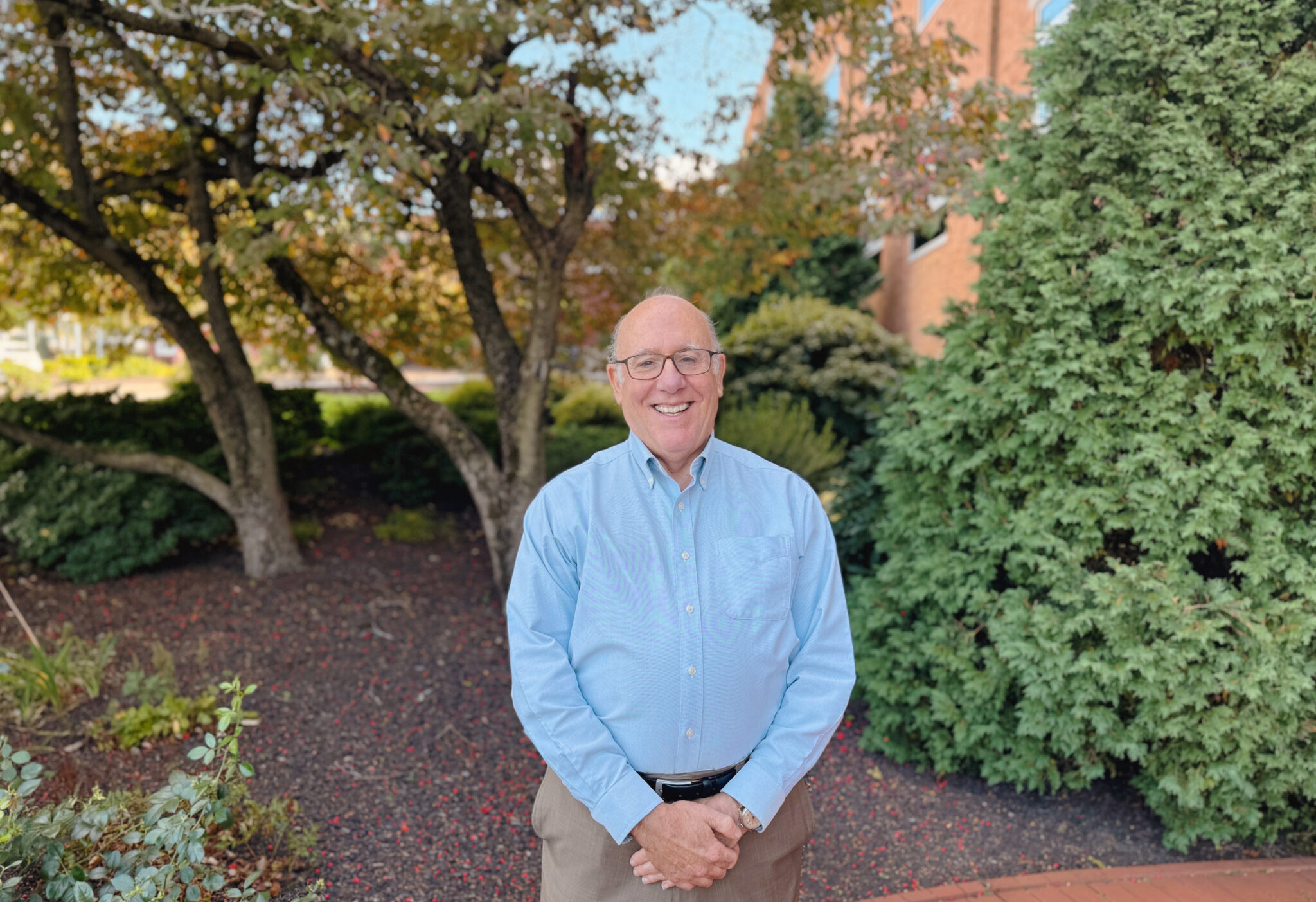After more than 40 years of practicing medicine and leading global health programs, Chuck Sherman, MD, stepped away from medicine — but not service. Instead, he felt called to a new kind of healing — not as a physician, but as a hospice and grief support volunteer with HopeHealth.
Here, he focuses on supporting young adults and children who are grieving the loss of a loved one.
“I lost my own father when I was 9 years old,” Dr. Sherman says. “It’s like paying it forward for me — or really, like paying it backward.”
> Become a HopeHealth volunteer
HopeHealth: What inspired you to volunteer with us after retiring from medicine?
Dr. Sherman: As a doctor, you have a very privileged relationship with your patients. When I retired, although I was ready to move on from clinical medicine, I missed those relationships. And I wanted to do something meaningful with my time.
HopeHealth had been on my mind for a while. Through my work as a pulmonary and critical care doctor in Rhode Island, I had often referred patients to HopeHealth. I knew a number of people here, including the chief medical officer, Dr. Martin. My mother spent the last year of her life living with us, and she was on HopeHealth’s hospice service.
So I knew the organization from both vantage points, both professional and personal. I always thought it was very well run and caring. I had a sense that it would be a good group to volunteer with. Turns out it was the perfect group.
There are many ways to volunteer here, both directly with patients and behind the scenes. What drew you to grief support?
At first, I thought of hospice patient visits. But I worried that might be a little too similar to what I had done for so long in my career. I didn’t want there to be confusion — like, “I’m a doctor, but I’m not your doctor.” That could be hard to navigate.
I gravitated to grief support because of my personal experiences. Since childhood, death has always been a part of my life: When I was 9 years old, my father died in a plane crash. In the next couple of years, I lost several grandparents. My mother, who was a force in her own right, married three more times, and each of those husbands also passed away. It’s been interesting for me to realize it would’ve been great when I was younger to have exposure to grief support programs like HopeHealth’s.
In medicine, I saw a lot of loss too. I began my medical career during the AIDS epidemic, and ended it during the COVID pandemic. I saw how death and grief affected the caregivers and families. Often, they’re the ones who need the most support. I think it’s great that HopeHealth supports not just the patient, but the whole family. That’s really important.
> Read: 7 tips for supporting a grieving friend
What do you do as part of the grief support team?
Every other week, I co-facilitate a grief support group for young adults in their 20s and 30s. My co-facilitator, Cindy Jones, is a retired mental health counselor, which has been a great learning experience for me.
The group is about creating a space where people can talk if they want to, or just listen. Often, it’s enough to just hear that somebody else is having a similar experience. I’m really impressed by how these young people show up for each other. It’s powerful to see someone say, “This was my experience,” and someone else say, “Me too.”
> Are you coping with grief and loss? Find a grief support group.
You also recently volunteered at Camp BraveHeart. Can you share a memory?
That experience will always stick with me.
Camp BraveHeart is HopeHealth’s grief support camp for kids and teens. This past summer, I helped lead a group of 13- to 15-year-old young adults. It was really hot both days. At one point, we were all at the pool — including us adults, who jumped in fully clothed. But one camper didn’t want to swim. He wanted to play basketball. So I got out of the pool and joined him.
This camper had lost his brother to a brain tumor. He opened up a lot to me while we were just shooting baskets, more than he had in the formal group settings. I could relate to him in so many ways. I loved basketball, he loved basketball. Like him, I wasn’t very tall at that age. I kept thinking about how, when I lost my dad, I would have benefited from a camp experience like this. At the end of camp, when we were all saying goodbye, he gave me a hug. It was so sweet.
Any other takeaways?
I want to emphasize how great HopeHealth is to their volunteers. The staff are wonderful and deserve a lot of credit. The initial training is excellent, and there are always ongoing learning opportunities. The head of volunteers, Diane Taveira, even sends out thank-you emails every Friday, and Marsha Ireland, the head of grief support, checks in monthly with the volunteer grief facilitators.
All that training and encouragement — it shows how much HopeHealth invests in its volunteers, and values us as part of the greater organization.
I’m also very appreciative of the work itself. When I was thinking about life after retirement, I knew I wanted to do something with real meaning behind it. Volunteering with HopeHealth is that. It’s about human connection. It’s about touching lives.
Questions about volunteering? Contact us at (833) 818-1919 or VolunteeratHopeHealth@HopeHealthCo.org.

